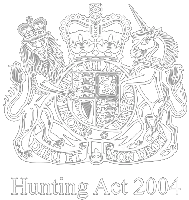Since the Hunting Act was introduced, the RSPCA and others have worked closely with enforcement bodies and have brought private prosecutions against individuals who have breached the Act. This specialised knowledge and expertise has enabled the organisations to compile the following list of best practice recommendations to assist officers with enforcing the Hunting Act in their area*:
- Identify your local Crown Prosecution Service (CPS) prosecutor with knowledge of the Hunting Act, prosecutions under the Act and hunting practices at an early stage (if one has been appointed in your constabulary).
- Request local hunts provide ‘meet cards’, which show where the hunts will be gathering at the start of each hunting day, at the beginning of the hunting season.
- Carry out spot checks or monitor your local hunt.
- If your local hunts claim they are trail hunting then request copies of trail maps at the beginning of each hunting season.
- Urge your local hunt to call on their staff and supporters to sign a Memorandum of Understanding (MOU) or a Code of Conduct which states that they will not engage in threatening or abusive behaviour towards hunt monitors.
- Ensure that Hunting Act and associated public order complaints are closed with a hunt – related incident code.
- Seek training on hunting practices both before and after the Hunting Act.
- Consult with other constabularies, CPS prosecutors or other organisations that have prosecuted individuals under the Hunting Act, to ensure best practice is shared.
- Encourage hunts to report any animals which their hounds have killed either when it happens or at the end of the days hunting.
- Ensure call centre operatives have been briefed on taking calls relating to the Hunting Act and that the personnel request and log details of any alleged offences.
Once evidence has been gathered:
- Ensure that the CPS is consulted early on in any investigations to allow sufficient time for the proceeding to be concluded within the six month statutory period. Please note that the statutory period for Hunting Act offences starts from the day the offence was alleged to have been committed.
- Source an expert witness to review evidence and provide an in-depth understanding of hunting practices.
* Please note that although hunts are not legally obliged to comply with requests directed at them, a court could derive a negative inference should they decline to provide the information.

